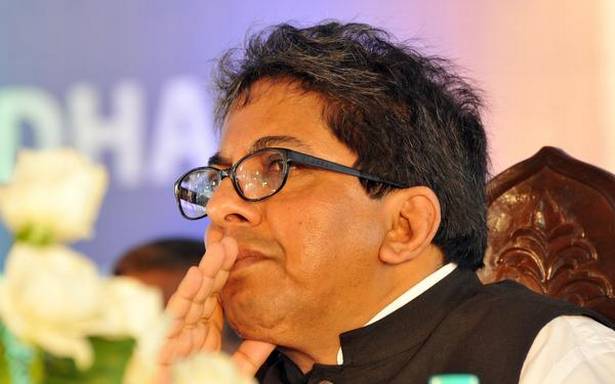After BJP lost the assembly election in West Bengal, there has been a continuous stream of frictions between the centre and the state government led by TMC. Starting from post-poll violence, in which many across party lines lost lives, the friction continued till the order given to Alapan Bandopadhyay. The confrontation over Alapan Bandopadhyay between BJP-led centre & TMC-led state points to some problems in Indian federalism.
After the review meeting on Cyclone Yaas, there has been an ego clash between the state government and the central government. It was because West Bengal Chief Minister Mamata Banerjee had not met with PM Modi and went to Digha to attend another meeting on the fallout of Cyclone Yaas. Sources in state government stated that Mamata Banerjee had followed the brief in letter and spirit, and that it was BJP which violated the terms of the meeting. The review meeting was supposed to be between PM and CM, but Suvendu Adhikari, leader of opposition in West Bengal was invited, which is against the brief. People supporting centre argued that Modi was made to wait by Mamata Banerjee.
Subsequently, the state chief secretary, Alapan Bandopadhyay got caught in the tug of war between central government and the state government. He was set to retire on May 31, when he was called to New Delhi for central deputation.
Many saw the step taken by the centre as a childish response to what happened in review meeting. Some observers compared the step taken by centre as a kid going berserk after losing a round of gully cricket.
Observers opined that the centre cannot penalize Mr. Bandopadhyay, as he was not relieved by the state government, which is allowed under the centre-state federal balance of power. This response of Mamata Banerjee government and Alapan Bandopadhyay left a bad taste with the BJP men at the centre.
In response to the order given to Alapan Bandopadhyay to report to New Delhi, Mamata said, “We are not relieving him. He has superannuated today, but he will act as the chief advisor to the CM for the next three years.”
Many opined that the recent developments bear testimony to the fact that despite all misgivings of her politics, the officers serving under Mamata Banerjee are not dispensable.
Also Read: What led to BJP’s defeat-Important highlights at the conclusion of the West Bengal election
After Mr. Bandopadhyay was made the chief adviser of Mamata Banerjee, he was sent a show-cause notice over the review meeting. The show-cause notice was issued by the centre to the chief secretary of West Bengal under Disaster Management Act.
Justifying the show-cause notice, a source in the central government said, “The point here is what Alapan Bandhopadhyay, a 1987 Batch IAS officer, in his position of chief secretary of the state, was expected to do. Was his conduct and behaviour appropriate of the position he held?”
DoPT handles all matters relating to the All India Services. It gave no reason for its peremptory order asking Bandopadhyay to report to it on May 31 in New Delhi. The central government, invoked the Disaster Management Act, and served a show cause notice on Mr. Bandopadhyay, who opted to retire on May 31. GOI issued the show cause notice to Mr. Bandopadhyay invoking Section 51(b) of the Disaster Management Act. Section 51(b) of DMA states, “Whoever, without reasonable cause refuses to comply with any direction given by or on behalf of the Central Government or the State Government or the National Executive Committee or the State Executive Committee or the District Authority under this Act”.
Under provisions of All India Service (AIS) Rules, the Centre cannot unilaterally initiate disciplinary proceedings against an IAS officer posted with a state government. But, GOI has instead used the nonspecific NDMA under which anyone can be tried for non-compliance of orders. Former civil servants described that this notice would not go beyond central administrative tribunal.
The politico-administrative standoff between the Centre and CM Banerjee ensued after she questioned and took offence to the presence of her party turncoat Suvendu Adhikari at the Centre-state cyclone review meeting.
Also Read: TMC vs BJP-Giving too much attention on criticizing a non-existential opponent can cause problem
For the deputation of civil servants belonging to a state cadre to the Centre, there are certain laid down procedures. The DoPT did not follow these procedural steps. As per rules, there should have been a formal request to the West Bengal government for the deputation of Alapan Bandopadhyay. The rules allow for the state government to refuse the request. Then and only then the central government may exercise its authority to insist on the implementation of its request. This tussle and tug of war between the centre and the state showed two aspects of Indian bureaucracy.
Federalism goes kaput in the presence of an overtly authoritarian government and bureaucracy gets heavily politicized, and the civil services are long due for reforms.





